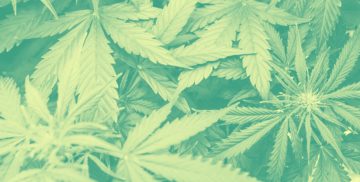CBD vs THC – Side Effects, Benefits and Uses
With the awareness and the arguments about legalising marijuana reaching the public far and wide, it has become critical to identify the compounds involved and understand the differences between them. Consumers, using marijuana for recreational as well as medicinal purposes, need to be more aware of their options. To know the product they are buying and how these compounds interact with the internal body systems.
The two most studied compounds derived from the hemp plants are tetrahydrocannabinol (THC) and cannabidiol (CBD). Both are cannabinoids that are extracted from cannabis but vary greatly in their inherent characteristics. One of them is used primarily for recreational purposes while the other has extensive therapeutic effects and is being vigorously researched upon to be considered as a potential treatment for a host of illnesses and neurological disorders.
Both these compounds have distinct uses, especially in the field of medicine, and their application in various treatments has significantly pushed the legalisation issue to the forefront with more and more countries joining the bandwagon. The legalisation of marijuana has also spurred the production and marketing of various hemp-based products including CBD oil, mostly used for wellness and hemp oil, that contains THC.
CBD is extracted from hemp and contains less than 0.3% THC as a rule. Marijuana plants or cannabis contains a high amount of THC and is responsible for the high that people get after smoking or consuming marijuana. CBD products can be sold in multiple forms — edibles, tinctures, vapes, supplements, gels and more. THC, too, can be consumed through a variety of products like oils and capsules and is the intoxicating compound.
Both CBD and THC interact with the endocannabinoid system of the body, however, both have a considerably different influence on the internal functions. While on the outset it looks like they are similar compounds being a part of the same family, they are vastly different in their effects and usage. Let’s take a look at the key differences in usage, benefits and side effects of THC and CBD.
What Is THC?
Tetrahydrocannabinol, commonly known as THC, is the psychoactive component of marijuana extracted from the cannabis plant. It is the compound that’s responsible for the mind-altering effects of marijuana and getting people high. It isn’t as widely accepted for medicinal purposes as it is for recreational. However, THC does have a lot of health benefits in itself, including its ability to treat pain, nausea and other illnesses. A lot of research is still underway to find out whether there is a way to use THC without its psychoactive effects.
What is CBD?
Cannabidiol is one of the hundreds of complex compounds found in the cannabis plant and is the positive element that opposes the negative effects of THC by being a non-psychoactive compound. It has a lot of health benefits and finds usage in treating chronic pain, anxiety, depression, epilepsy and stress and many more disorders. Its therapeutic properties have made it extremely popular and with the legalisation of cannabis. There are a lot of brands that are manufacturing CBD-based products that help to treat various illnesses.
Currently, one can find CBD oils, vapes, capsules, cosmetics and even drinks in the market, CBD oil is the most used of all, even though the legality of the product remains debatable and sketchy in various instances. In cases where CBD is legalised, like the UK, there are stringent conditions under the law that have to be followed, the main being that the component of THC in the CBD should be less than 0.3%.
Differences Between CBD And THC
Both CBD and THC are derived from the same source and therefore are often thought of as being the same thing. And to be fair, they are similar to some extent. However, CBD and THC differ drastically, in terms of both their properties and application.
The main difference between CBD and THC is that THC is a psychoactive compound that gets you high while CBD is a non-psychoactive compound that has no intoxicating effects. It doesn’t produce the same high as THC does. This is because of the way these two react with the endocannabinoid system in the body and help it function.
THC binds with the CB1 receptors of the ECS that results in a sense of high and mind alteration. CBD, on the other hand, does not bind with either the CB1 or CB2 receptors and also hinders the binding of THC, weakening the psychoactive properties.
There are other ways in which THC and CBD differ.
CBD vs THC: Benefits
Both CBD and THC can be used in various medicinal cases and can offer relief for the same conditions. However, the difference in the benefits arises due to the non-psychoactive nature of CBD which makes it a lot more suitable and accepted in the medical community, since it’s devoid of the euphoric effect possessed by THC.
CBD is used in the treatment of illnesses and disorders like anxiety, inflammation, chronic pain, depression, stress, epilepsy, and even in cancer-related symptoms. THC, on the other hand, is used in the treatment of nausea, appetite, glaucoma and more.
CBD vs THC: Side Effects
There have been no notable or significant side effects of CBD so far. As per studies carried out so far and reports by consumers, the side effects caused by CBD might include dryness of the mouth and drowsiness. There are no dangerous side effects caused by the non-psychoactive compound.
However, there have been some substantial side effects caused by consuming THC that have been reported in various studies. These include anxiety, paranoia, hunger, cognitive and neurological functions getting distorted and other harmful effects on health. The appetite imbalance can also lead to overeating or an eating disorder.
CBD vs THC: Legality
This is one of the most crucial bits where most people get confused. There has been a long-lasting debate on the legality of CBD and THC and legalisation of marijuana in general. The restrictions on the open use of these compounds have also restricted research in the area and possibly the scope of them being used as potential treatments.
CBD productsare completely legal in the UK, provided it is made using a hemp strain that’s industry approved and has of THC below the permissible limit. THC remains a controlled drug under the law in the UK. All CBD products being sold in the UK should have less than 0.3% of THC in them.
Still, with the rules in place and not much awareness being promoted, it can be confusing to buy the right CBD products since many brands sell wrong products in the name of CBD.
CBD vs THC: Interaction with the Endocannabinoid System
Both CBD and THC actively interact with the endocannabinoid system of the body. The way they interact, though, is what makes all the difference.
THC binds with the CB1 and CB2 receptors both, being more inclined towards the CB1 receptors that are primarily found in the brain. This is what results in producing the high from marijuana.
CBD, though, does not bind with either of the two cannabinoid receptors of the ECS and inherently hinders the binding of THC with the receptors as well. It deactivates the characteristics of THC and results in only producing positive therapeutic effects in the body.
Conclusion
CBD and THC, both come from the same source and are both cannabinoids. They are a part of the marijuana or the cannabis plant and also have some overlapping benefits and potential use in treatments. The most significant and crucial difference is that THC causes the person to experience a negative high while CBD only causes positive therapeutic effects. Therefore, it’s extremely important for consumers to be aware of the differences between the two and then buy the products, after doing thorough research on the ingredients and whether the product is lab tested.


















